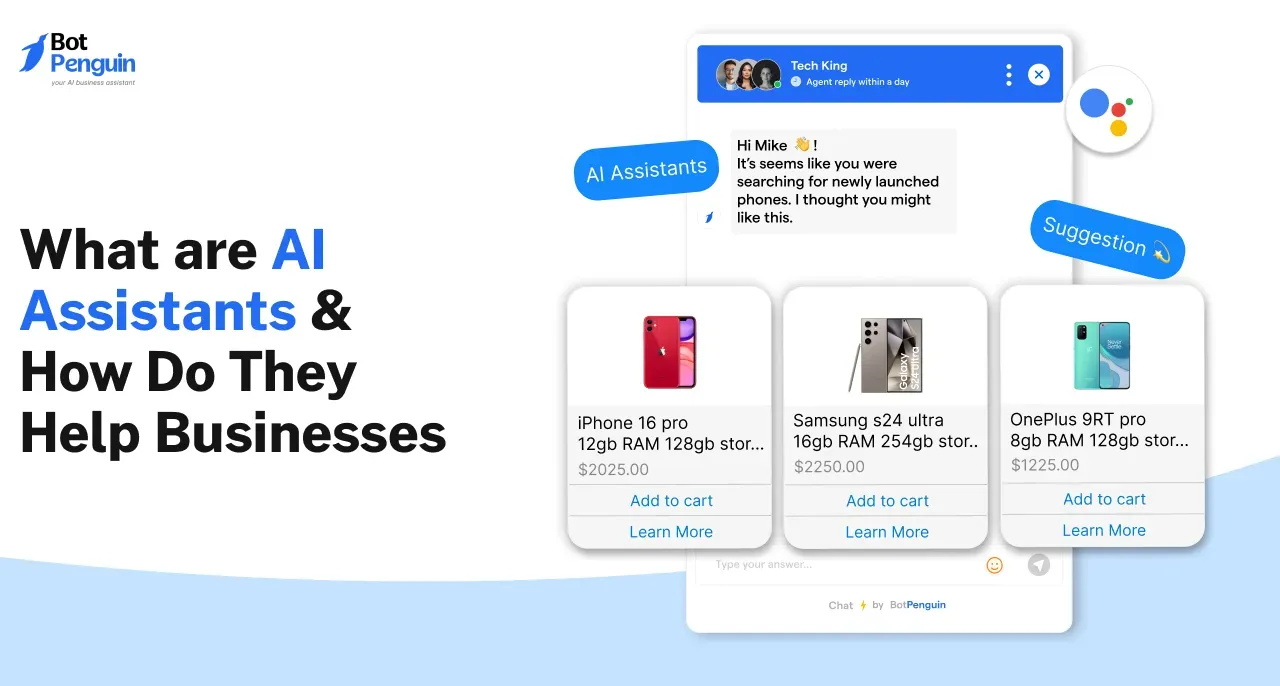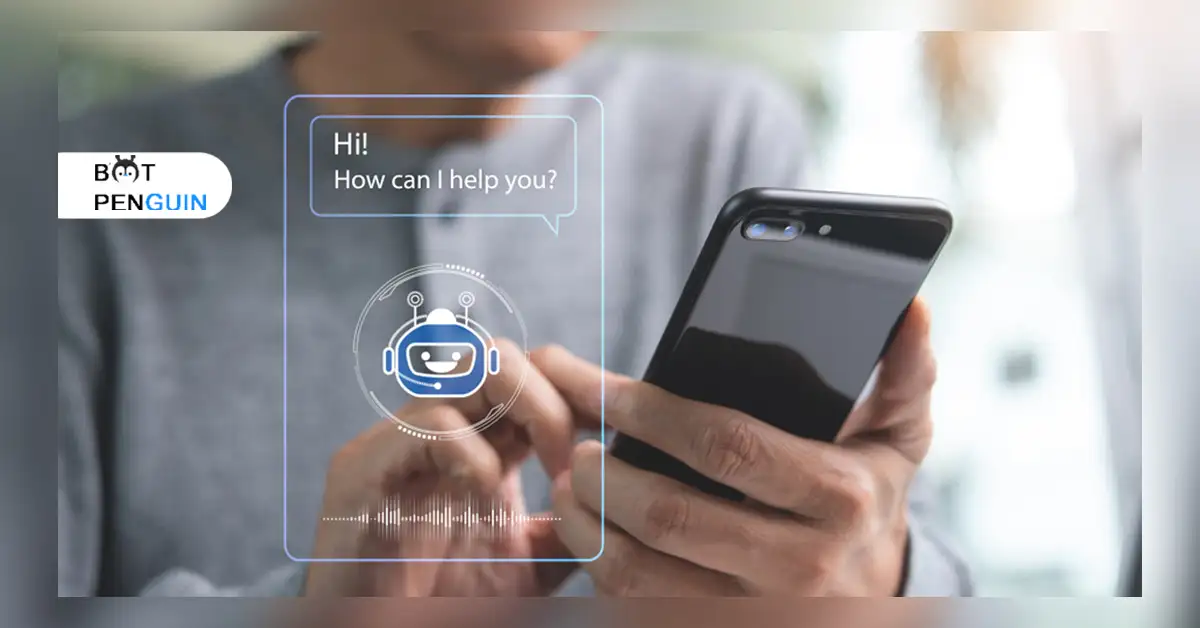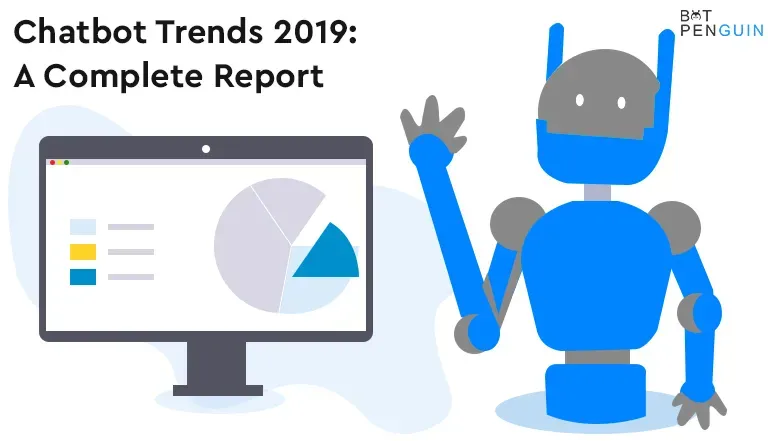In the era of digital transformation, ChatGPT chatbots are becoming increasingly popular tools for businesses to improve their communication and overall customer experience. By integrating artificial intelligence (AI) and natural language processing (NLP) techniques, ChatGPT chatbots can communicate with users in a conversational manner, providing swift and accurate responses. This article will explore 10 ChatGPT chatbot use cases that can inspire your chatbot strategy and ultimately help you take your business to the next level.
Introduction to ChatGPT Chatbot Use Cases
ChatGPT chatbots are becoming essential for businesses to enhance their operations and improve customer experiences. Their ability to handle a wide range of tasks more efficiently than human operators and at a lower cost has made them popular in various industries. This article will explore compelling chatbot use cases to help you craft your strategy.
Customer Service
One of the most popular use cases for ChatGPT chatbots is customer service. ChatGPT chatbots can provide instant customer assistance, answering common questions and resolving issues quickly. They can also gather customer feedback and provide personalized recommendations based on the customer's history with the company. Using ChatGPT chatbots for customer service can reduce wait times, improve response rates, and increase customer satisfaction.
Lead Generation
ChatGPT chatbots can also be used to generate leads for businesses. ChatGPT chatbots can gather information about their needs and preferences by engaging with potential customers through chat. This information can then be used to provide personalized recommendations and offers, increasing the chances of converting leads into customers. ChatGPT chatbots can also help businesses qualify leads by asking relevant questions and providing targeted responses.
Content Distribution
ChatGPT chatbots can also be used to distribute content to customers. Businesses can keep customers informed and engaged by providing relevant and engaging content through chat. ChatGPT chatbots can also send personalized content recommendations based on the customer's interests and preferences. This can help businesses build brand loyalty and increase customer engagement.
E-commerce
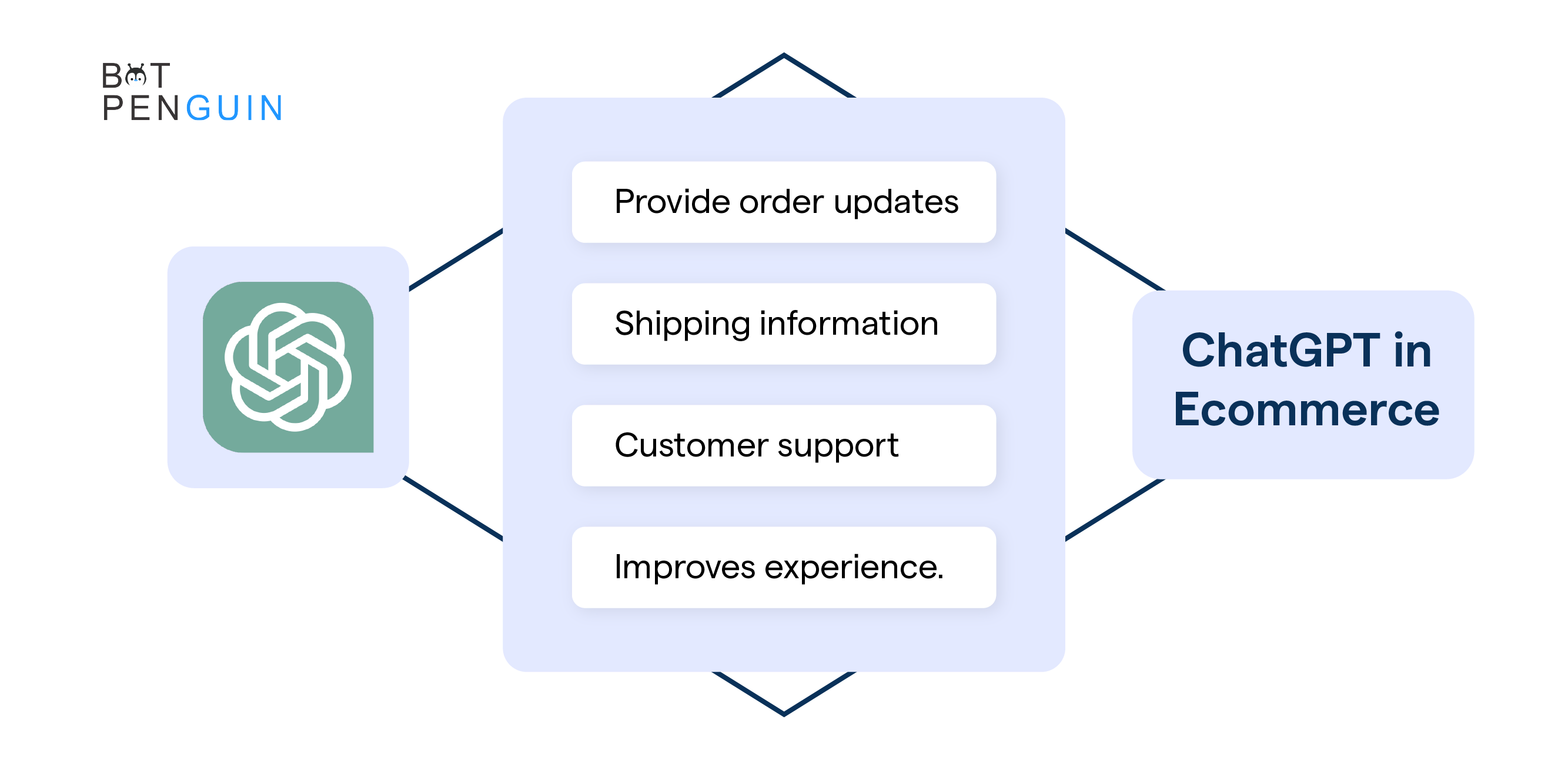
ChatGPT chatbots can also be used to enhance the e-commerce experience for customers. ChatGPT chatbots can help customers make informed purchasing decisions by providing personalized product recommendations and answering customer questions. ChatGPT chatbots can also provide order updates, shipping information, and customer support, improving the e-commerce experience.
Conclusion
ChatGPT chatbots present many opportunities for businesses to enhance their operations and improve customer experiences. Companies can reduce costs, increase efficiency, and improve customer satisfaction by leveraging ChatGPT chatbots for customer service, lead generation, content distribution, and e-commerce. As chatbot technology evolves, we expect more innovative use cases to emerge.
1. Customer Support and Issue Resolution
Streamlining Customer Queries
Customer support is one of the most common chatbot use cases. As ChatGPT chatbots can process and respond to queries 24/7, they provide customers with instant and efficient support, eliminating the need to wait for a human agent. ChatGPT chatbots can answer frequently asked questions, assist with troubleshooting, and even escalate complex issues to human support representatives when necessary. This way, businesses can streamline customer queries, saving customers and the support team time.
For instance, imagine a customer has an issue with their order. They can simply type in their query to the chatbot, which can provide them with a step-by-step guide on resolving the issue. If the issue is more complex, the chatbot can transfer the conversation to a human agent who can provide more personalized support. This saves the customer time and ensures their issue is resolved quickly and efficiently.
Reducing Response Time
Besides managing customer queries, ChatGPT chatbots can significantly reduce response times, improving customer satisfaction. By leveraging AI-powered ChatGPT chatbots, businesses can address multiple issues simultaneously, ensuring customers receive fast and accurate assistance. Consequently, this leads to reduced customer wait times and better overall support experiences, which can foster customer loyalty.
For example, imagine a business that receives a high volume of customer queries daily. With a chatbot, the support team can respond manually to each query, which can be time-consuming and overwhelming. However, with a chatbot in place, the support team can focus on more complex queries while the chatbot handles the simpler ones. This reduces response times and ensures customers receive accurate and consistent answers to their queries.
Moreover, ChatGPT chatbots can also provide proactive support by sending notifications to customers about their orders, upcoming events, or relevant promotions. This helps businesses stay top-of-mind and provides customers with a personalized experience, which can increase brand loyalty and customer satisfaction.
2. E-commerce and Shopping Assistance
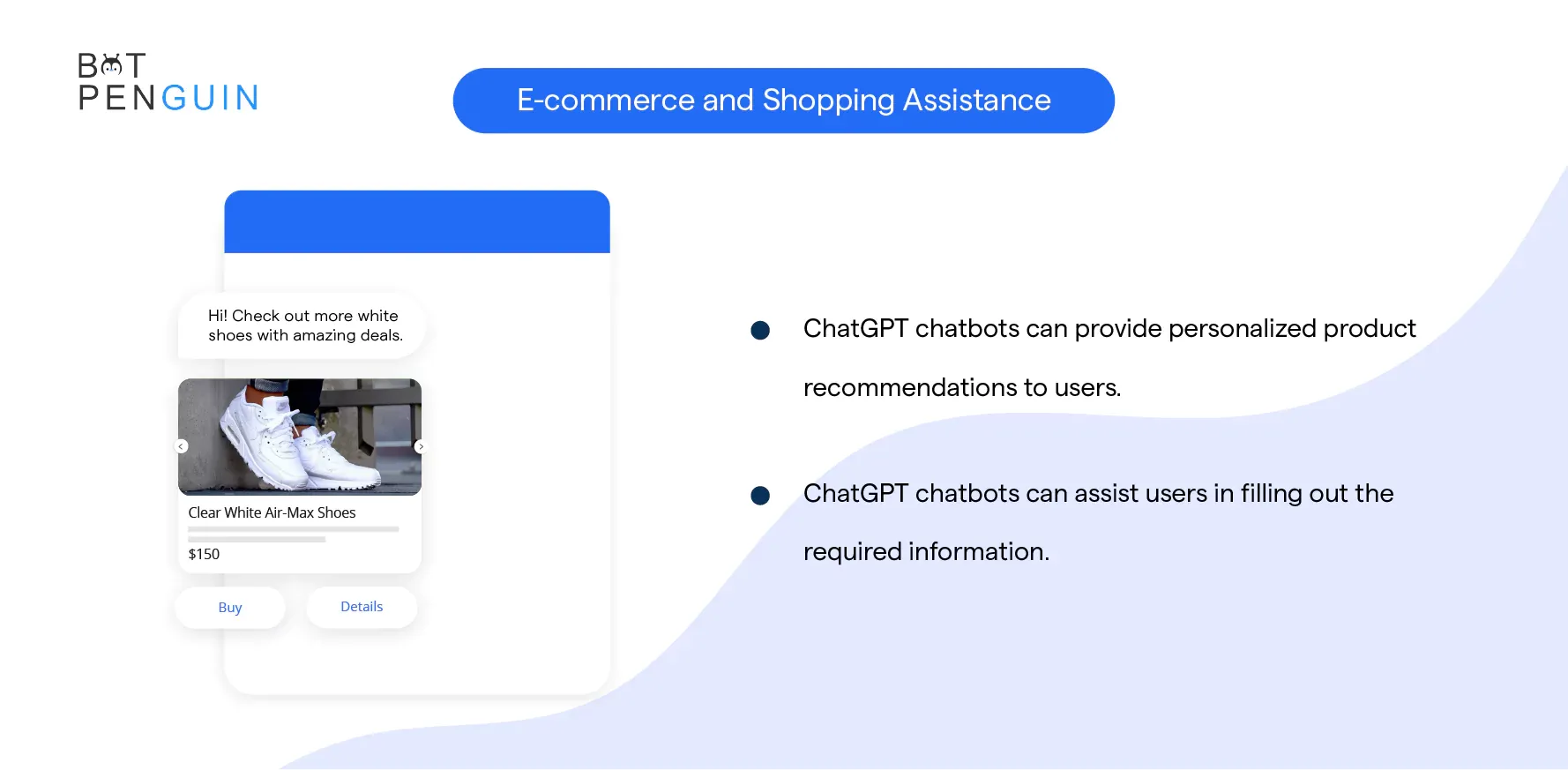
Personalized Product Recommendations
In the e-commerce sector, ChatGPT chatbots have proven invaluable in guiding customers through shopping. ChatGPT chatbots can provide personalized product recommendations by asking relevant questions and analyzing customer preferences. This enhances the user experience and increases the likelihood of making a sale, as customers are presented with items that match their needs and interests.
Simplifying the Checkout Process
Another essential e-commerce chatbot use case is simplifying the checkout process. Technical issues, complicated forms, or lengthy procedures may discourage customers from completing their purchases. ChatGPT chatbots can assist users in filling out the required information, addressing potential questions, and walking them through the process step by step. This streamlined checkout experience can increase conversion rates and better customer retention.
3. Lead Generation and Qualification
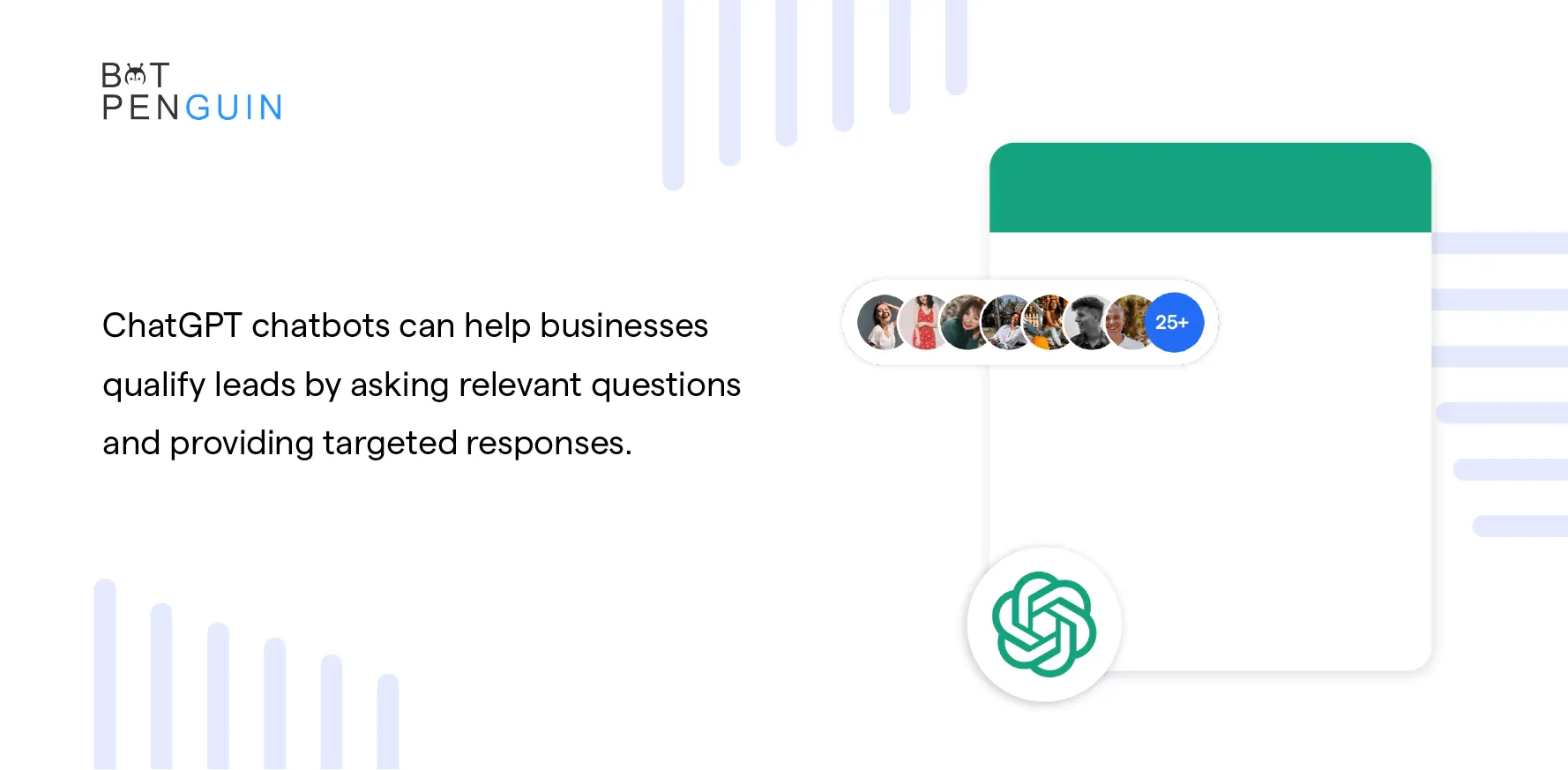
Identifying Potential Customers
For businesses looking to expand their customer base, ChatGPT chatbots can play an essential role in lead generation. By engaging website visitors in conversation, ChatGPT chatbots can collect essential details, such as contact information and preferences, that can help businesses identify potential customers. This real-time engagement can capture leads' interest before they leave your website and lose your chance to connect.
Gathering Essential Information
Moreover, ChatGPT chatbots can also gather crucial information to qualify leads. By analyzing the user's details, ChatGPT chatbots can determine the lead's stage in the buyer's journey, assess their interest level, and identify which products or services they might be interested in. This information can help your sales team prioritize leads and customize their sales approach accordingly, ultimately increasing conversion rates.
4. Booking and Reservation Management
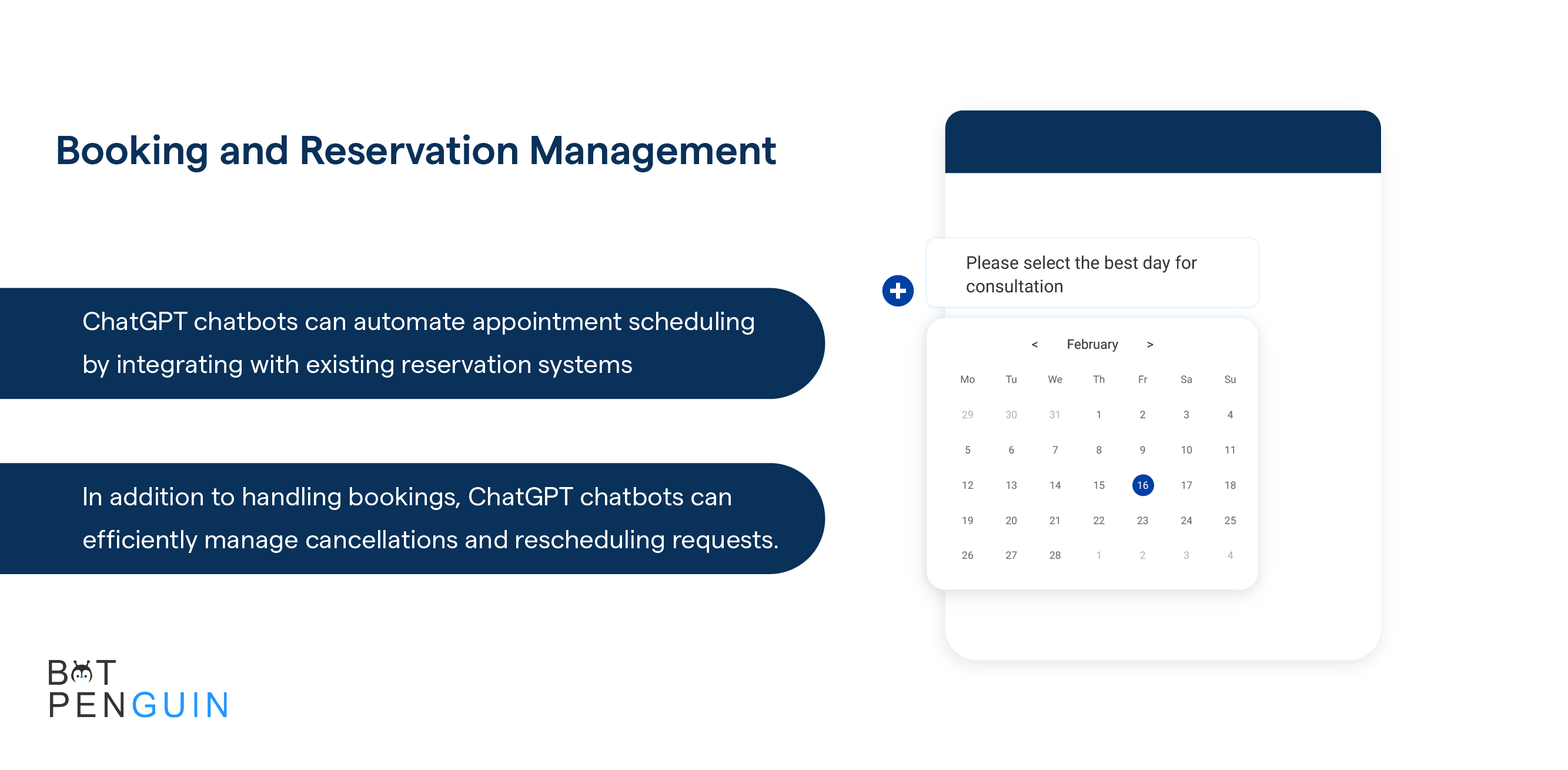
Automating Appointment Scheduling
ChatGPT chatbots can streamline the booking and reservation process for various sectors, including hospitality, restaurants, and service providers. ChatGPT chatbots can automate appointment scheduling by integrating with existing reservation systems, allowing customers to book or reserve their desired time slots without interacting with a human agent. This simplified booking process can save customers and businesses time and effort, leading to a more pleasant experience.
Managing Cancellations and Rescheduling
In addition to handling bookings, ChatGPT chatbots can efficiently manage cancellations and rescheduling requests. By enabling customers to cancel or reschedule their appointments via the chatbot, businesses can ensure that any changes are updated promptly in their systems. This helps avoid potential double bookings or vacant time slots, which can negatively impact business revenue and customer satisfaction.
5. Onboarding and User Engagement
Guiding Users Through New Platforms
Introducing new users to your platform can be challenging. Still, ChatGPT chatbots can make the onboarding process smoother and more engaging. Instead of overwhelming users with lengthy explanations or dense content, ChatGPT chatbots can provide a step-by-step guide and answer any questions that may arise in the process. By offering personalized assistance, users can feel confident navigating your platform and are more likely to continue using it.
Encouraging User Retention
ChatGPT chatbots can help with onboarding and play a crucial role in user retention. Regularly conversing with users allows ChatGPT chatbots to provide timely assistance, offer helpful tips or updates, and collect valuable feedback. This proactive approach will enable businesses to stay connected with their customers, improving user experience and encouraging long-term loyalty.
6. Content Distribution and Promotion
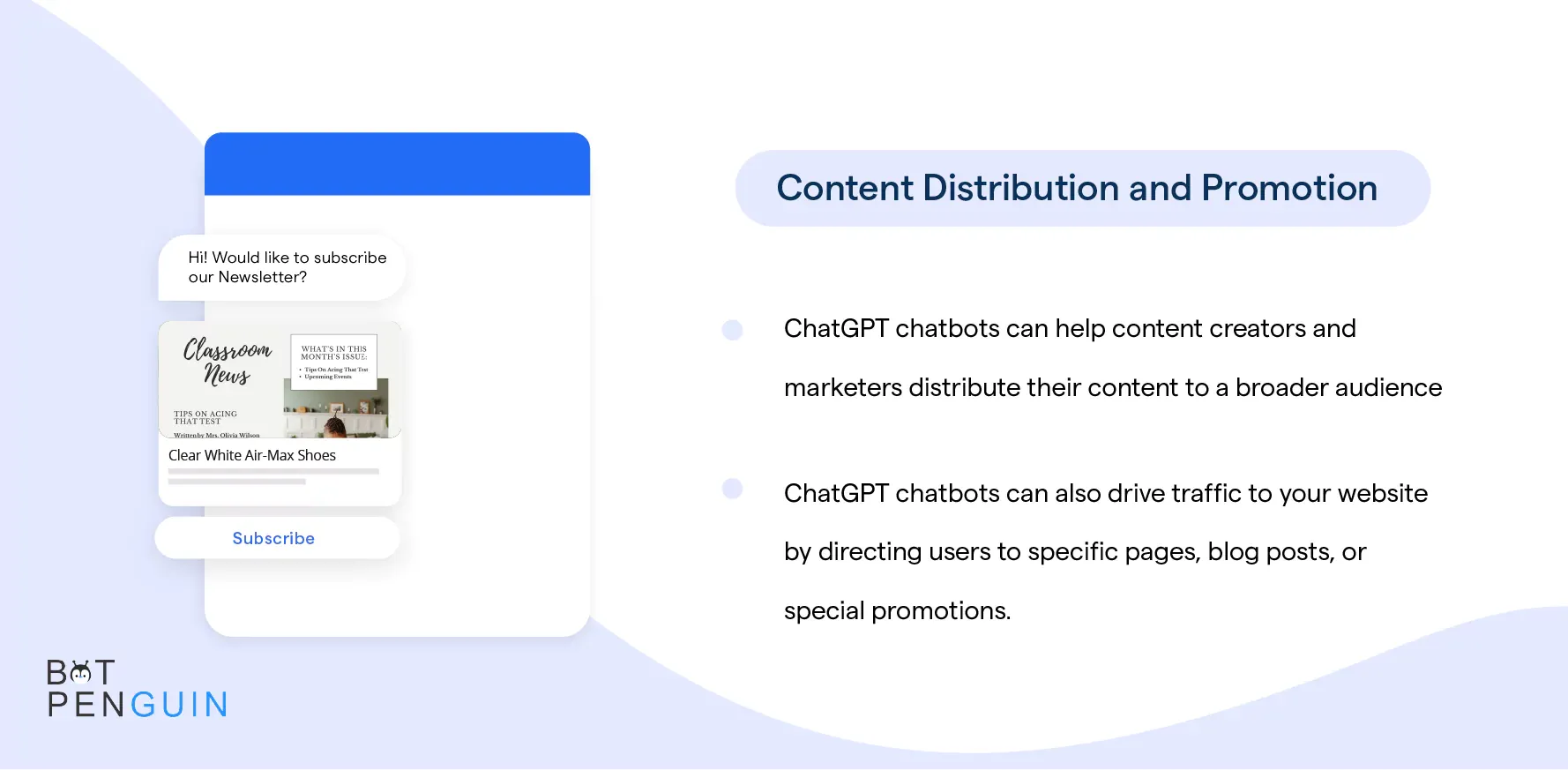
Sharing Relevant Articles and Updates
ChatGPT chatbots can help content creators, and marketers distribute their content to a broader audience by automatically sharing relevant articles or news updates with users who have expressed interest in specific topics. Businesses can increase content engagement and expand their reach by delivering customized content directly to users' inboxes or chat windows.
Driving Traffic to Your Website
Alongside sharing content, ChatGPT chatbots can also drive traffic to your website by directing users to specific pages, blog posts, or special promotions. By leveraging chatbot conversations, businesses can guide users towards desired actions, such as visiting the site, signing up for a newsletter, or making a purchase. This targeted approach can help increase website traffic and boost sales and brand awareness.
7. Event Management and Promotion
Simplifying Event Registration
ChatGPT chatbots can significantly improve event management and promotion efforts by streamlining the registration process. By allowing attendees to register for events directly through the chatbot, businesses can reduce the time and effort involved in manual registration. Additionally, ChatGPT chatbots can send automated reminders and updates, ensuring that attendees stay informed and engaged throughout the event.
Providing Event Information and Updates
Lastly, ChatGPT chatbots can act as an information hub for event-goers, offering real-time information about schedules, speakers, and venue updates. By serving as a reliable source of information, ChatGPT chatbots can improve the overall event experience for attendees while alleviating the burden on event organizers.
In conclusion, ChatGPT chatbots have immense potential to transform how businesses operate and engage with their users. By leveraging AI-powered ChatGPT chatbots in various capacities, you can streamline operations, improve customer satisfaction, and drive revenue growth. As you consider implementing ChatGPT chatbots into your business, consider these inspiring use cases to develop a comprehensive and effective chatbot strategy.
You can connect with BotPenguin. It is a platform that allows users to create their own chatbots for various purposes.

